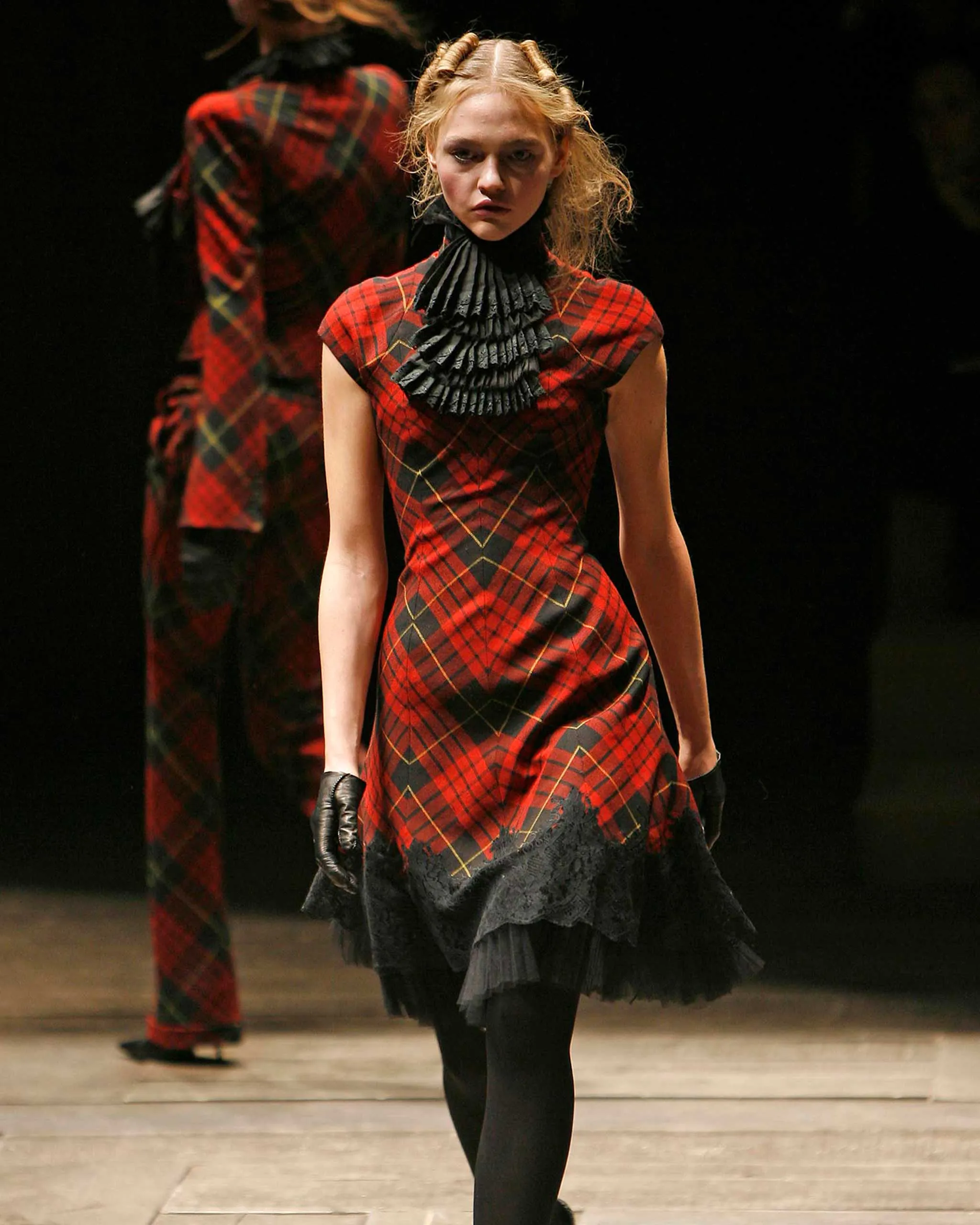In her personal archive, Lauren Lepire of Timeless Vixen holds Look 1 from Alexander McQueen’s “Widows of Culloden” Autumn/Winter 2006 collection, originally worn by Sasha Pivovarova as she opened the show. Courtesy of Byronesque/Anthology
Timeless Vixen is more than just a boutique; it functions as a “shoppable museum” where owner Lauren Lepire treats designer garments as artefacts.
Lauren Lepire has built her career on a singular vision: that fashion is wearable history. As the founder of Timeless Vixen, one of Los Angeles’s most respected vintage dealers, she treats vintage like cultural artefacts. “Storytelling is at the core of Timeless Vixen,” she says. “I like to think of us as a shoppable museum with special dresses that have history.” Her boutique is filled with garments that are “not only incredibly gorgeous but also rare, significant works of art that make you think.”
Her passion began in the theater. A musical theatre major at the University of Southern California, she quickly found herself drawn less to the stage and more to the glamour that surrounded it. “I had always loved fashion as well, but never really knew how to put the two together,” she explains. At just 18, she was combing estate sales and swap meets for “important museum quality pieces that had been tossed aside,” eventually deciding “to dedicate my life to archiving one of the greatest fashion collections in the world.”
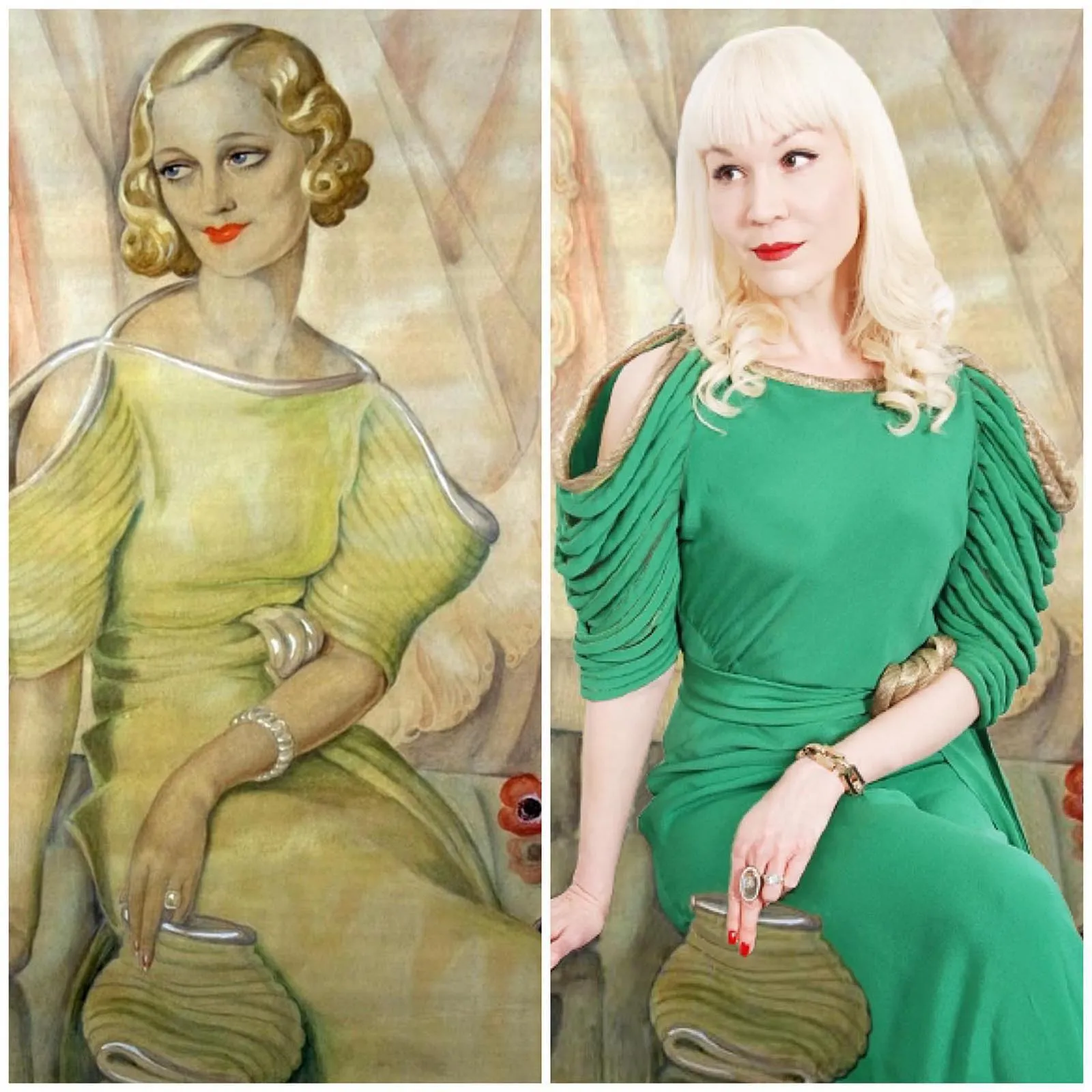
Research lies at the heart of her process. Lepire gathers information from any source she can, often starting with the story a previous owner shares. “What makes this dress special? Why is it timeless? Who wore it?” she asks before making a purchase. Some of her favorite discoveries come from what she calls her “mystery pieces,” extraordinary garments without labels. A 1930s emerald green silk and gold lamé gown sat in her archives for over a decade before she saw it depicted in a portrait of Danish actress Eva Heramb by Gerda Wegene. “I almost died,” she recalls. Her research revealed it to be a 1933 Jeanne Lanvin haute couture gown titled Parthenon, featured in French Vogue and Lanvin perfume ads that year. “I was finally able to tell the incredible story of this amazing haute couture Lanvin dress and share it with our followers.”
Instagram has become a powerful tool for storytelling. Lepire considers each dress to have its own “mood,” and approaches shoots with intention. “Before deciding what to showcase, I think about why the dress I’m choosing is relevant right now.” Early on, she would Photoshop herself into archival editorials to highlight the timelessness of each garment. Today, with her husband Douglas Walker as videographer, the boutique has become “our own little runway.” She casts friends to model based on proportion and personality; Miss Miranda for bombshell 1950s pieces, herself for a 1990s Galliano bias-cut gown, and edits the clips into what she calls “fashion archival music videos.” Music is crucial: “The vibe needs to be on point and I really enjoy this part.”
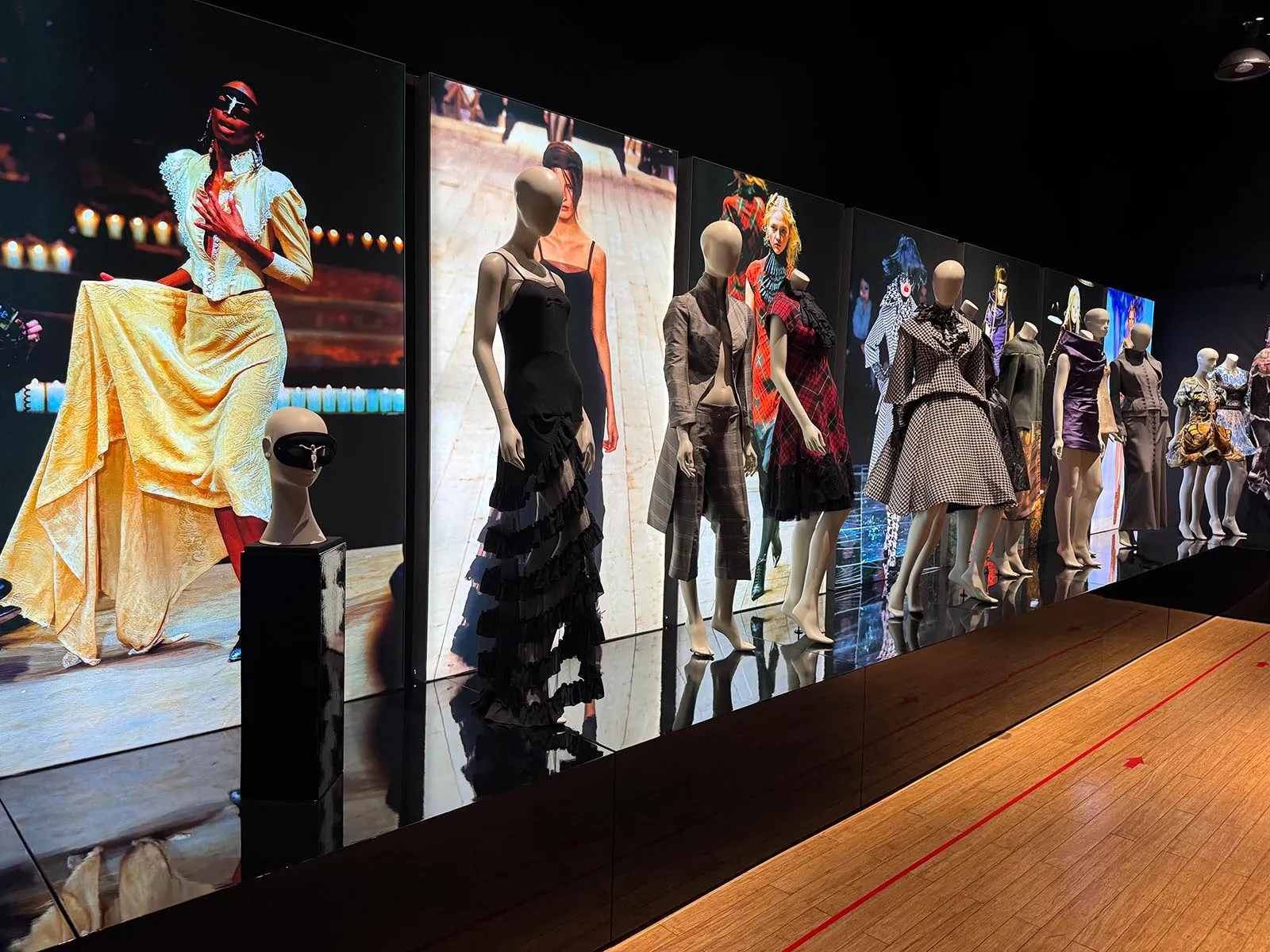
She admires collectors and dealers who share her meticulousness, citing Laverne Cox, Henry Wilkinson, Justin Weijgers, and JD Paris as examples of those who “put in the extra time to document their pieces.” Her advice to newcomers is simple: “Truly speak from the heart. There is no right or wrong way to share what you love, just make it unique to you,” she says. “Good lighting and double checking your information is key, as well as making sure you have the right collection details to confidently tell the story of your piece.”
Among the many designers she collects, none resonates more deeply than Alexander McQueen. “I connect with Alexander McQueen on both an artistic level and a personal one,” she says. As a theatre major, his “theatrical storytelling through clothing definitely appeals to the actress in me,” and when she wears his work, “I am transformed into a more confident version of myself.” His relationship with his mother mirrors her own: “Sadly in 2012 my mother, who I was equally as close to, passed away. I understand this grief felt by McQueen and like a friend wish I could have helped him when he needed it most.”
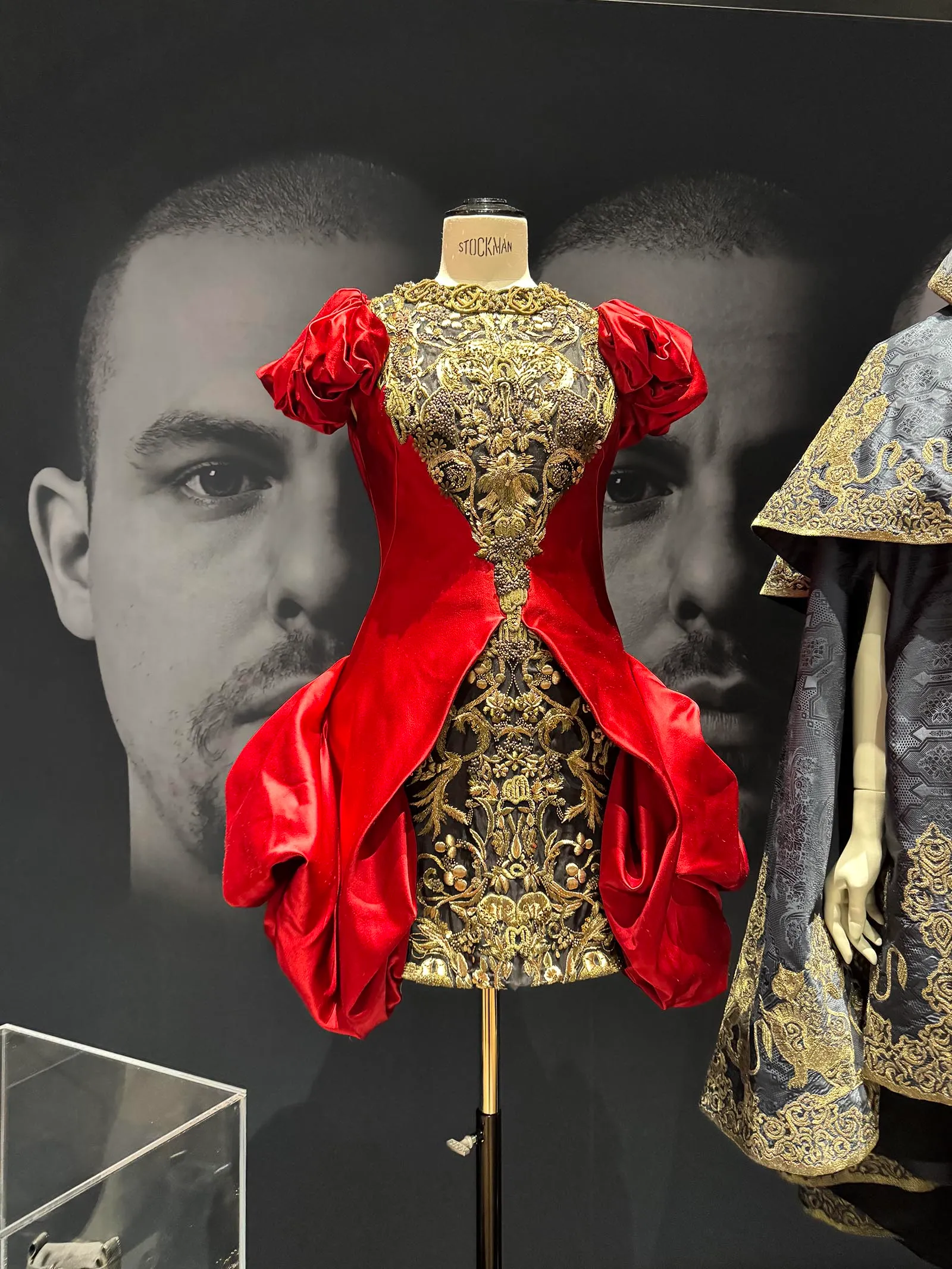
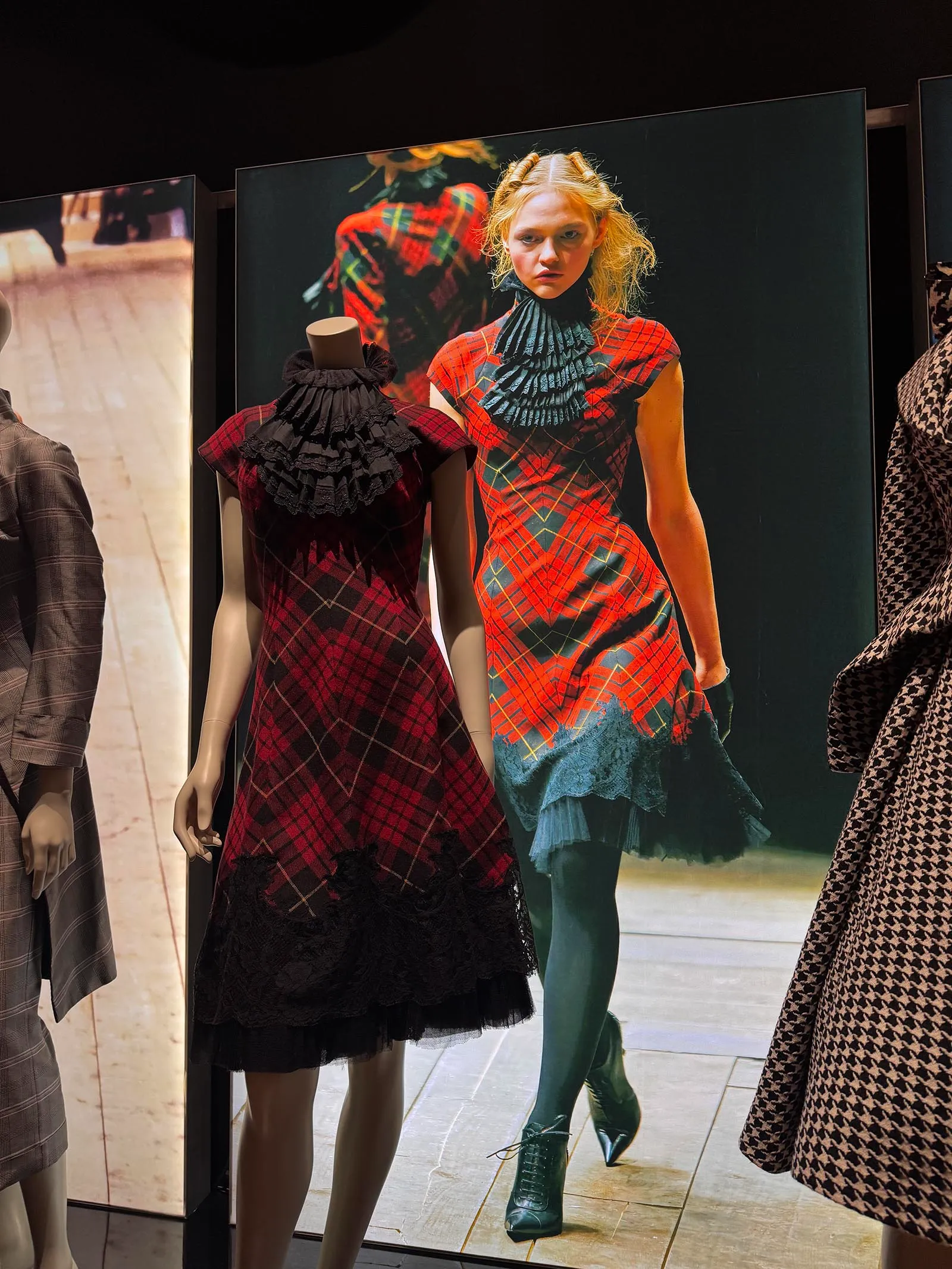
This connection became public when she loaned four rare pieces to the House of McQueen exhibition curated by Byronesque, including the coveted Look 1 lace and tartan dress from the Fall/Winter 2006 “Widows of Culloden” collection, as well as three looks from his final “Angels and Demons” collection. The embroidered ruby-red satin pleated dress came with matching shoes and boots. Her favorite is the ornate black silk cape. “I feel invincible when I wear this piece, and though it’s hard not being in my possession at the moment I’m incredibly proud to share her with the public.”
The exhibition, which accompanied an off-Broadway play, underscored what Lepire has always believed: McQueen’s work is theatre, history, and emotion all at once. “I really enjoyed the play,” she says. “It is such a wonderful visual spectacle, and I appreciate the detailed costume design. It really focused on McQueen’s complex life and struggles that go along with being a talented genius. I walked away with a better understanding of the fashion world as a business. A lot of artists like Alexander McQueen look at their work as art, so the demands of the business world can feel overwhelming. It’s truly a must-see if you love McQueen.”
For Lepire, vintage fashion is more than an archive. It is a living narrative, one she shares dress by dress, story by story. Through Timeless Vixen, she preserves the emotional and historical weight of a garment while giving it new life in the present.
